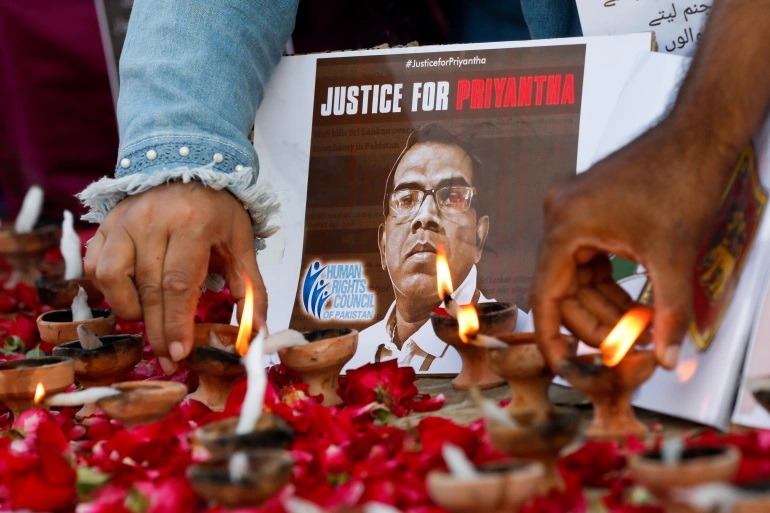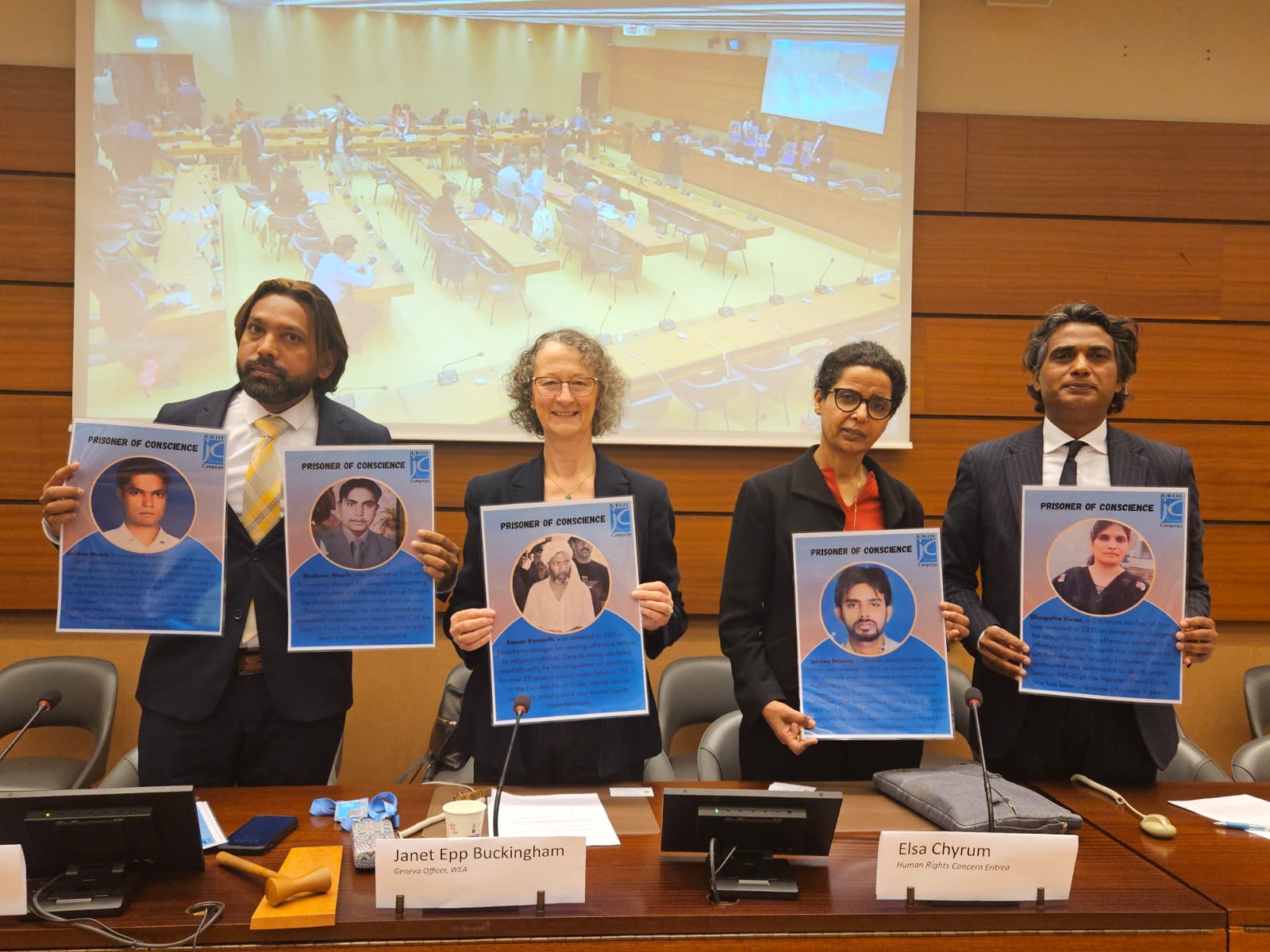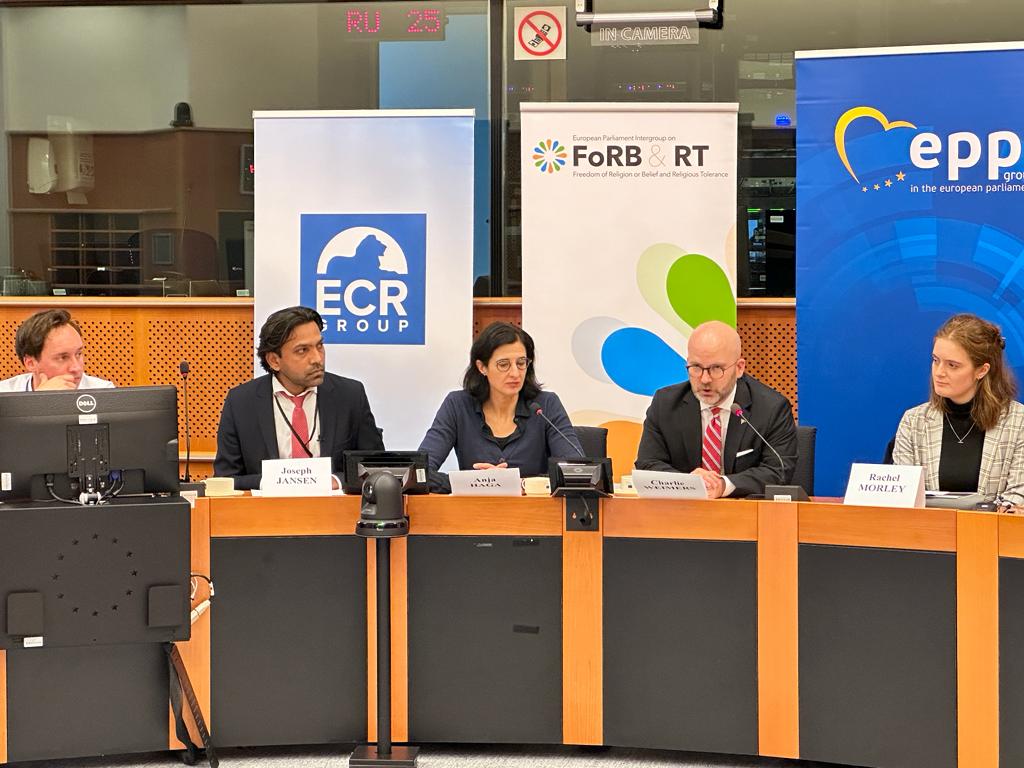The human rights groups have expressed deep concerns over the mob violence in the guise of blasphemy accusation, as observed in the lynching and killing of a Sri Lankan factory manager in Sialkot, Pakistan on December 3, 2021. They are deeply alarmed by the inhuman treatment of Priyantha Kumara Diyawadana, who was tortured to death for allegedly tearing down a poster of a political party bearing the name of Prophet Muhammad, from the wall at a time when the building of the factory was under renovation. It is worrisome that the mere blasphemy allegation instigated the charged mob that tortured him to an extreme degree leaving all his bones of the body broken except the leg followed by the lynching of his corpse.
The representatives at Voice for Justice observe that the blasphemy laws maintained by Pakistan do not consider whether a person intended to commit blasphemy. Removing a poster that, without being aware of it, have the name of the prophet printed on it can lead to murder. This is deeply concerning since a large part of Pakistani society is uneducated and illiterate. In addition, if Priyantha Kumara would have been a Pakistani Sunni Muslim, he probably would not have been killed. Among Pakistani Muslims there is a widespread desire to defend Islam and the Muslim society against people from other religions, as they are seen as a threat to Islam. In addition, Islam teaches a mentality of dominance where they allow other religions to live under the reign of Islam, but not as equals. When they see that a person from another religion threatens Islam they might feel the need to affirm their dominance by using violence. Outsiders, such as this Hindu Sri Lankan man, can easily fall victim to persecution, extreme violence and murder.
It causes for a sense of fear amongst non-Muslim Pakistanis. Without intending to commit blasphemy, they can easily be accused and killed at any given day. The non-Muslim community feels fear to enter into a dispute with Muslims, since they know they can very easily be accused of blasphemy and be killed.
Stephan Masih is a good example of how these blasphemy laws can be used by Sunni Muslims to settle personal scores. Stephan Masih is a mentaly challenged Christian man who was in a dispute with his Muslim neighbors over pigeons entering the neighbors house. During this argument Stephan was accused of insulting the prophet Mohammed and has been in prison for the last 2 years.
The human rights groups demanded that the honorable courts in Pakistan should hear Stephen Masih’s case on an urgent basis and drop all charges against him on account of false accusation, and his psychosocial disability and health condition.
The head of the Voice for Justice, Joseph Jansen observed that the abuse of blasphemy laws has increased exponentially in Pakistan as the false accusations of blasphemy are often made, misusing blasphemy laws, and are motivated to settle personal vendettas or property disputes or religious prejudice. He deplored that the accused persons do not receive a fair trial under blasphemy laws as they are deprived of their liberty, and are made to spend several years behind the bars without committing any blasphemous offense. He lamented that the complainants and witnesses involved in leveling false allegations against the accused often enjoy impunity, and they are not effectively prosecuted for charges of perjury under Section 182 of the Pakistan Penal Code whose punishment extends to 5-7 years. The provision, if enforced, could help change the mindset and direction of the stakeholders involved and the public about how to respond to such accusations.
The human rights groups urge the government to consider the following measures to prevent the abusive use of blasphemy laws.
· The Government of Pakistan needs to introduce a National action plan to counter religious extremism and intolerance, to put an end to mob violence in the name of religion.
· The Government of Pakistan needs to enforce the existing provisions to criminalize perjury, false and malicious accusations, and redefine blasphemy by amending blasphemy laws substantially to make them consistent with international human rights law and standards, including on freedom of expression; freedom of thought, conscience or religion; and equal protection of the law.
· The Government of Pakistan needs to introduce substantive reforms in the blasphemy laws to address disproportionate penalties and to make blasphemy-related offenses bailable and cognizable to ensure judicial warrants be a prerequisite for launching an investigation and making arrests.
· The reforms must include putting in place adequate and effective procedural and institutional safeguards at the investigative, prosecutorial and judicial levels including, inter alia requiring evidence by accusers, ensuring proper investigation by senior police officials, allowing authorities to dismiss unfounded accusations, to ensure that the accused persons are not unjustly punished on the basis of mere allegation.
· Implement recommendations of the Judicial Inquiry held on Gojra Inquiry Commission in 2009 through an effective compliance committee to introduce institutional safeguards for investigation and prosecution to prevent misuse of blasphemy laws.
Reported by Joseph Jansen





